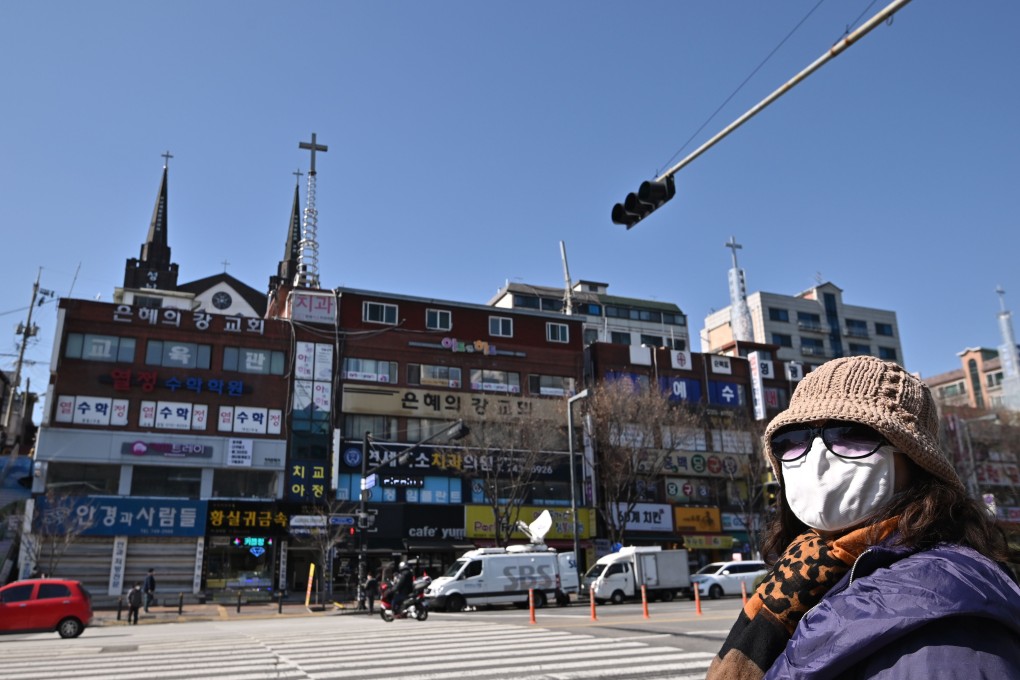Coronavirus: South Korea threatens to close churches for not enforcing preventive measures
- Gyeonggi Province, which includes Seoul, will close nearly 140 churches if they do not take steps to prevent the spread of Covid-19
- This comes after 46 infections in Seongnam, where officials sprayed salt water into the mouths of church-goers without disinfecting the nozzle

Gyeonggi Province said on Tuesday that it has issued an administrative order for the churches to list the names of attendants, screen them for fever and ensure that they wear masks and are at least two metres apart during services until March 29. The province can close the churches and fine them as much as US$2,400 if they fail to abide by the order.
The Korea Centres for Disease Control and Prevention (KCDC) reported 84 new coronavirus cases as of Tuesday, marking a third day in a row that the county has reported fewer than 100 new infections, raising hopes that Asia’s largest outbreak outside China may be easing.
The new numbers are well below a February 29 peak of 909, and bring the country’s total infections to 8,320, the KCDC said. The death toll rose by two to 81.
The government said on Tuesday it plans to tighten border checks for all arrivals from overseas to prevent new cases of coronavirus coming into the country at a time when domestically transmitted infections are subsiding.
“We’ve assessed that there’s a need for universal special entry procedures for all arrivals, given rapid increases in new cases not only in Europe but also in the United States and Asia in the wake of the pandemic,” Vice Health Minister Kim Gang-lip told a briefing.